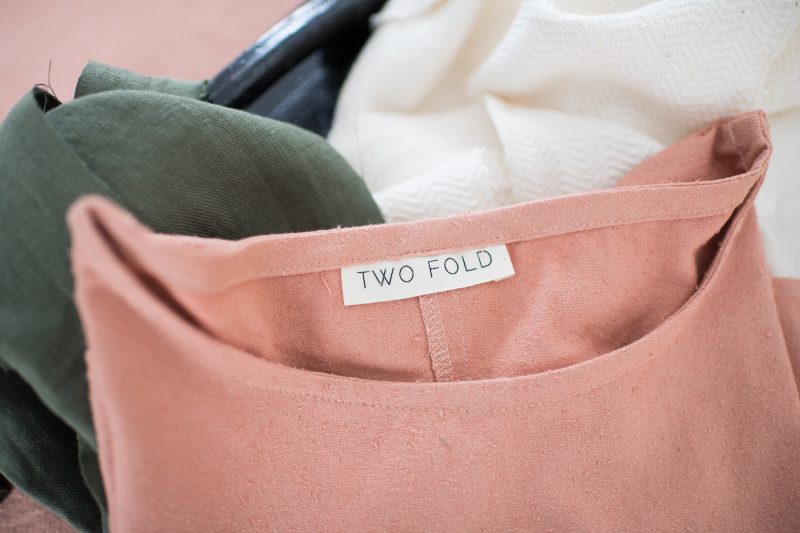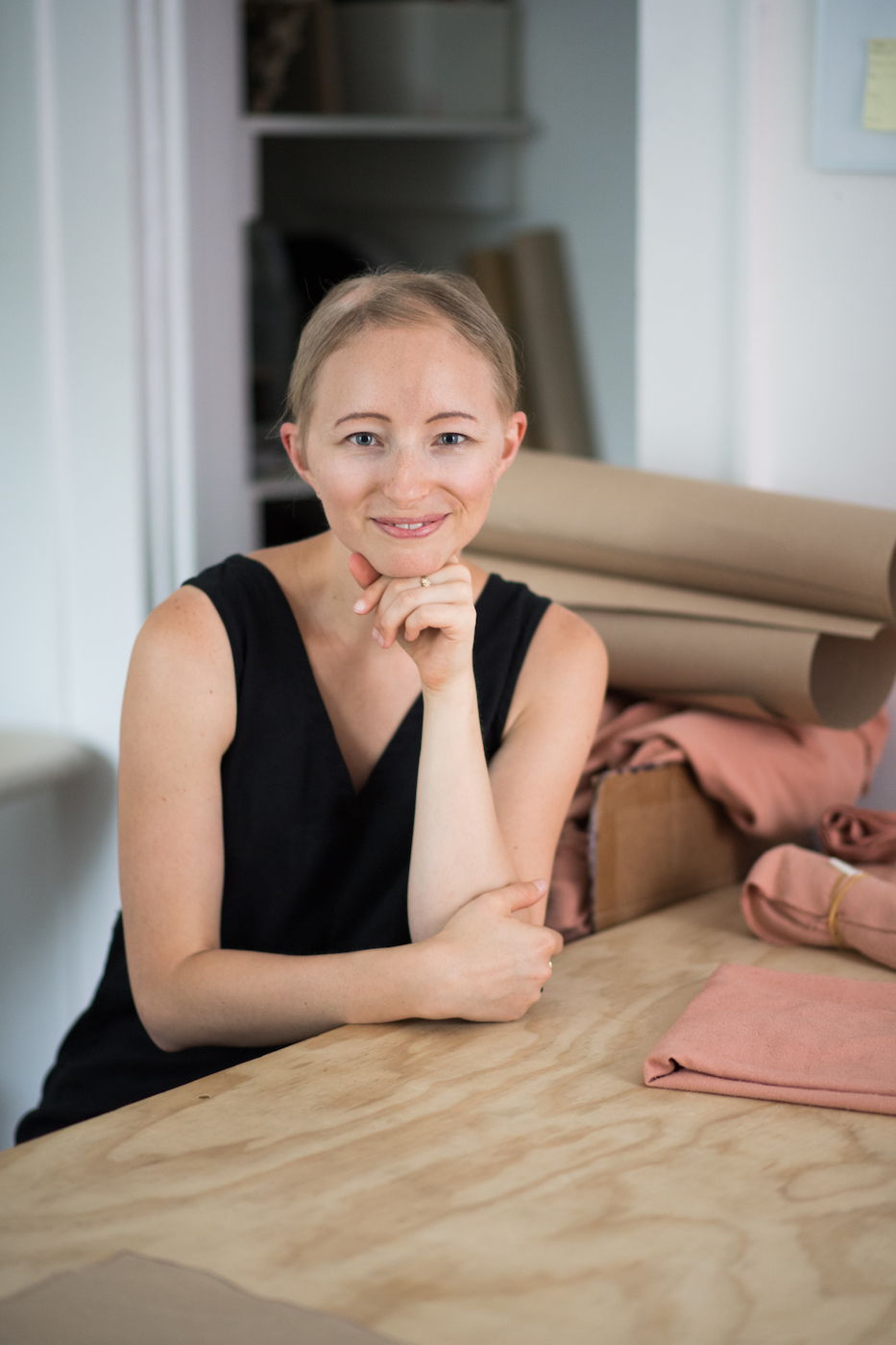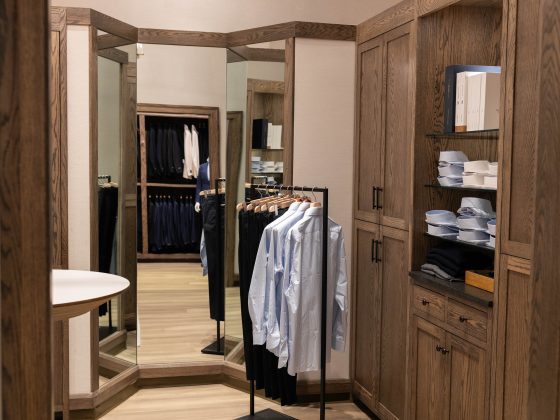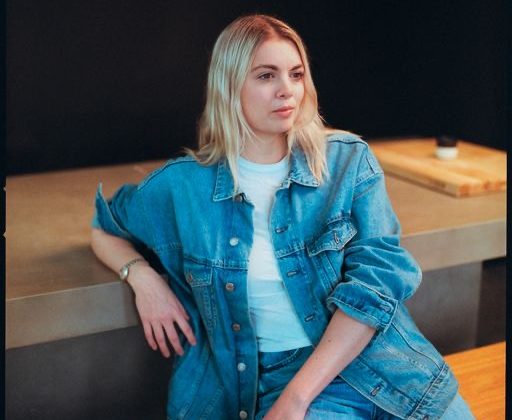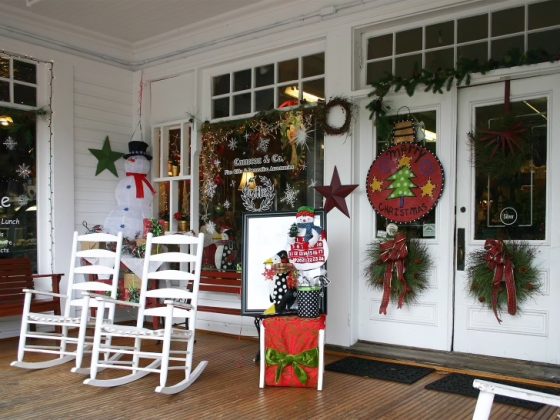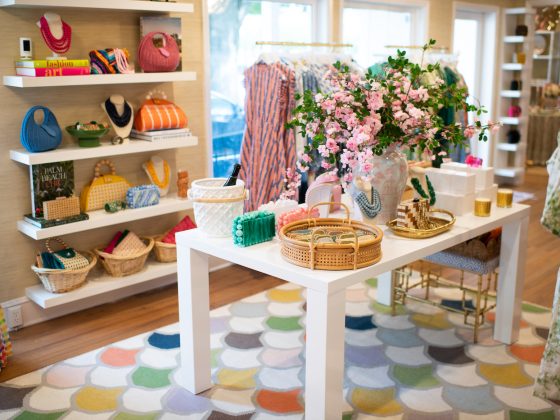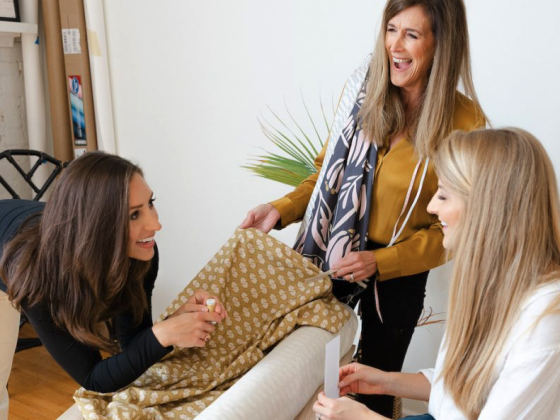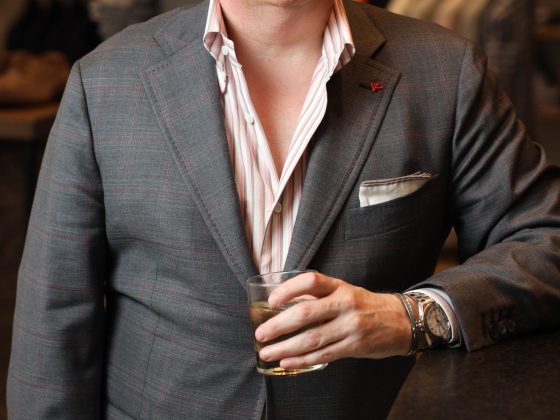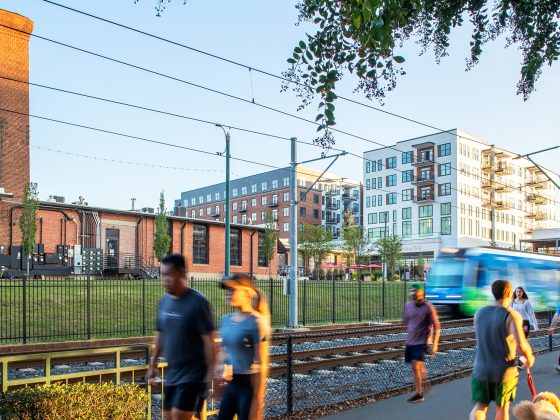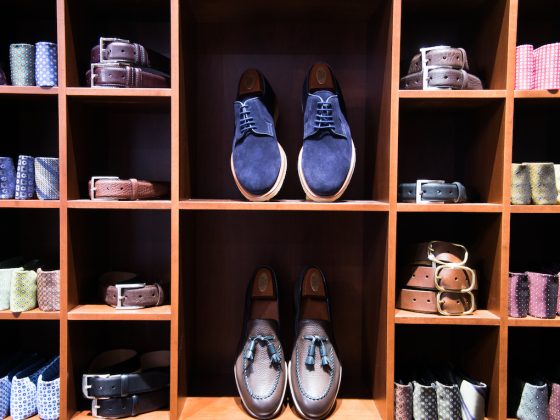Morgan Wagstaff’s mission is not unlike the products she creates: simple, unified, and organic. Two Fold is the name of her label, a line of handmade, small batch fashion released in capsule collections twice a year. The look is simple but striking: clothing that’s classic, feminine, and natural, all made to order and created in-house.
Two Fold stands for two things: environmental and social consciousness. In terms of environmental impact, the team uses only the highest quality certified organic and sustainable fabrics, as well as 100% recycled packaging supplies in their shipping. The social piece comes in to play with Wagstaff’s commitment to helping those in need. We work with organizations like 410 Bridge, assisting communities in the developing world to bring them into economic stability.
“We are continually looking for ways to lower our waste and be gentler to our planet,” Wagstaff, a Charlotte native, explains.
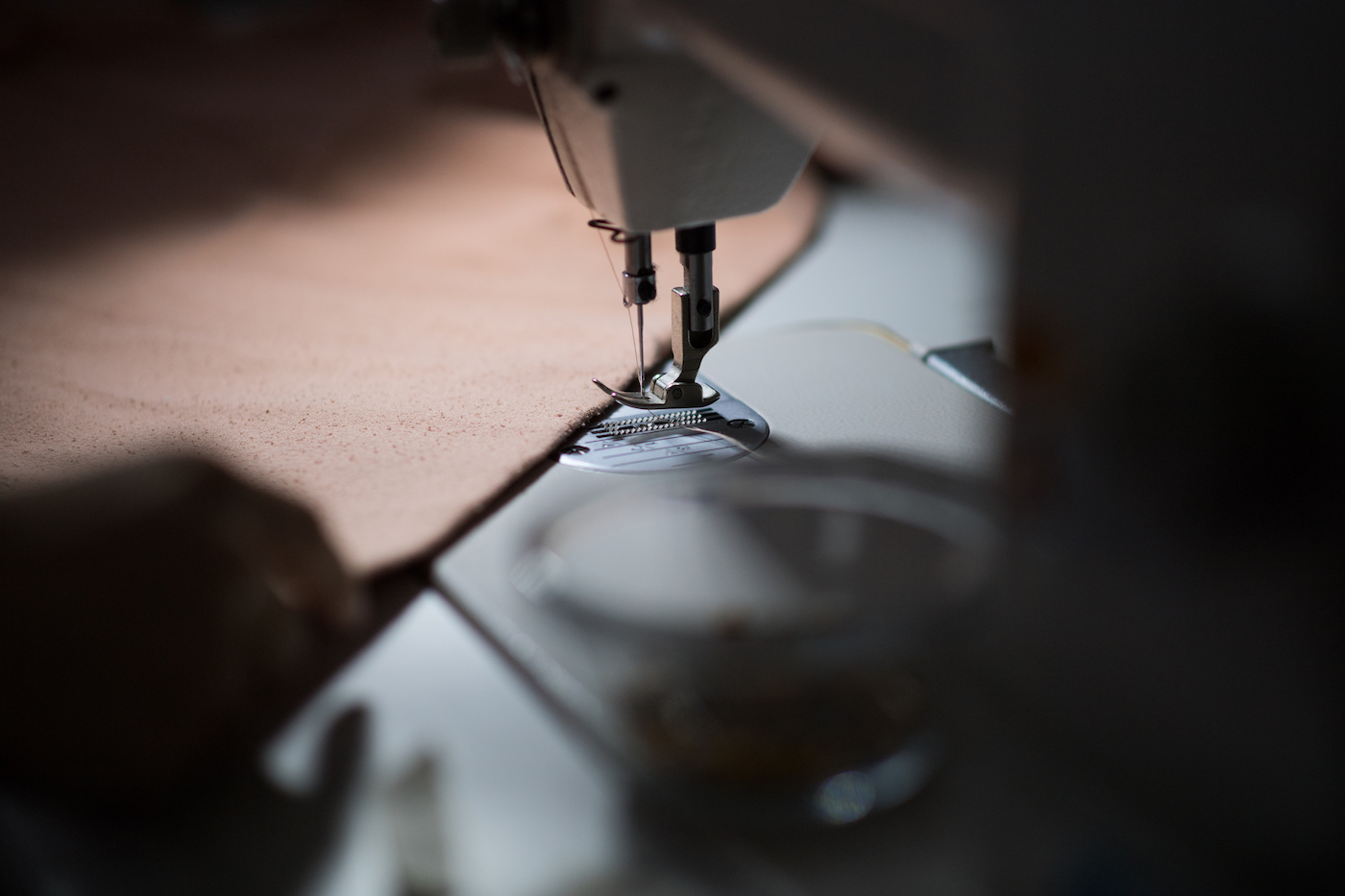
Two Fold started after Wagstaff interned for a small, ethical brand and saw how a start-up really works. She started with a dream and a crowd-funding project to help fund the first production run.
“Step by small step, I simply worked daily to help the idea become a reality.”
Over time, her team has grown. Wagstaff has been able to step back from sewing and hand-making every piece herself, but the mission has stayed steady.
How can people learn to shop more ethically and why is that important?
The first suggestion I have in learning about the importance of shopping ethically, especially in the apparel industry, is the documentary The True Cost. It’s an endless cycle, unless we start doing things differently. We have the power to stop this cycle by changing our buying habits. Just remember, every purchase has a cost beyond the price tag.
Who are some of your early style inspirations?
I really looked up to the Olsen twins (and still do). I also grew up watching Friends religiously and wanted nothing more than to look and dress just like Rachel.
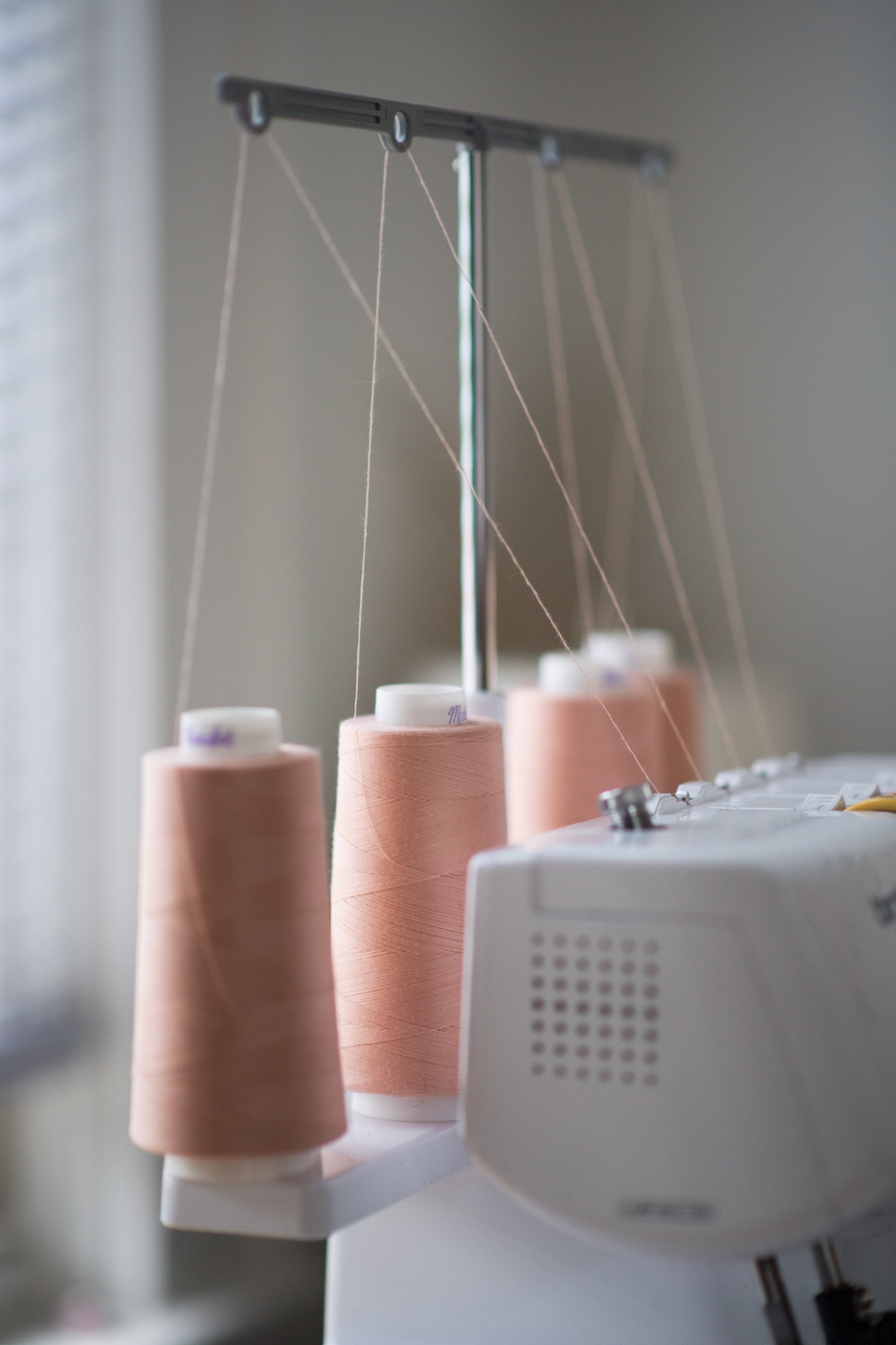
What has been the greatest lesson you have learned since starting your business?
I think one of the greatest things I’ve learned is that running a business is hard work. It takes a strong backbone and resilient spirit. I’ve encountered countless curve balls in the last two years, and some days it feels like my job is simply putting out fires. Starting and running a business is the hardest thing I’ve ever done, but it’s been so rewarding to see myself rise to the occasion and get the job done.
What is the inspiration behind your newest collection?
We are currently working on our “core” collection, with pieces that are the bread and butter of Two Fold. The ethical fashion community is working to become more inclusive of all ethnicities, sizes, and genders. And we are starting by extending our size range to include larger sizes and short and tall lengths. We’ve also been photographing our pieces on models of all ethnicities and sizes. Unlike our previous collections, this one has been guided by these evolvements.
Can you describe to us some distinct differences between how you all source, design, and produce versus other brands?
The main difference between the “fast fashion” and “slow fashion” industries is how quickly products are designed and produced. “Fast fashion” companies are selling goods at an extremely low price point. The only way they can survive is to continually offer more for consumers to buy. So, they produce and offer new styles continually throughout the year, sometimes new collections every single week. At Two Fold, we create collections twice a year. Our pieces are made to last, and we pay meticulous attention to detail when producing our clothing. By only launching twice a year, we can take the time to source natural, environmentally-friendly fabrics and materials and make sure our quality meets our high standards.
What does your day-to-day work look like?
Every day is a bit different than the next. Currently, I fill my days with emails, working on our new website, training new sewers, sourcing and ordering materials, managing inventory and all of our projects, etc. My days used to be filled only with sitting at my sewing machine. As I’ve stepped away from that role, I’ve been able to keep better track of all the goings-on and day-to-day production.
What is the greatest reward of owning the business?
A month ago I would have said my greatest reward is seeing the fruition of things I’d only dreamed of doing. But, honestly, seeing the impact the brand has had on the people who have purchased from, worked for, or been a part of it has been the most rewarding. Seeing the growth in my sewers and studio assistant has made it all worth doing. And, I’ve so enjoyed
the conversations I’ve had with customers about how they have changed their purchasing habits to be more conscious about our planet and the people on it.


